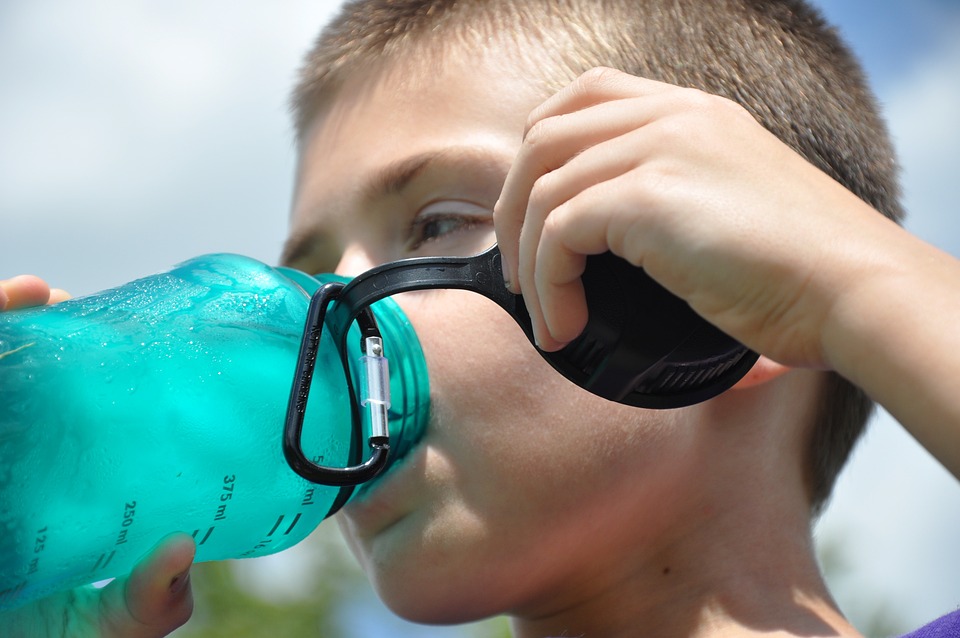The Hydration Equation: How Water Intake Can Aid in Weight Loss
Introduction
Water is often underestimated when it comes to its role in weight loss. People tend to focus on exercise, diet,
and other factors, neglecting the importance of proper hydration. However, research suggests that water
intake plays a significant role in weight management and can aid in weight loss. In this article, we will
explore the hydration equation and understand the underlying mechanisms through which adequate water intake
can contribute to shedding those extra pounds.
The Link Between Water Intake and Weight Loss
Water is a vital component of our body and plays several essential roles. When it comes to weight loss, water
intake can have multiple positive effects on our metabolism, appetite, and overall well-being.
1. Boosting Metabolism
Studies have shown that drinking an adequate amount of water can temporarily increase our metabolic rate. This
increase occurs due to the thermogenic effect of water, where the body expends energy to heat the liquid to
body temperature. By boosting metabolism, water can help burn more calories throughout the day, even during
periods of rest.
2. Suppressing Appetite
Many people confuse thirst with hunger, leading to unnecessary calorie consumption. By staying properly
hydrated, you can avoid this confusion and better understand whether you are genuinely hungry or just in need
of some water. Drinking a glass of water before meals can also help create a feeling of fullness and reduce
your overall calorie intake.
3. Replacing High-Calorie Beverages
Water is a zero-calorie beverage that can replace high-calorie sugary drinks and sodas. By substituting these
calorie-dense beverages with water, you can significantly reduce your daily calorie intake, helping you create
a calorie deficit necessary for weight loss.
How Much Water Should You Drink?
The amount of water one should drink varies based on various factors such as age, gender, weight, physical
activity level, and climate. However, a general recommendation is to drink at least eight 8-ounce glasses of
water per day, commonly known as the “8×8 rule.” This equals about 2 liters or half a gallon of water. Some
individuals might require more or less water depending on their circumstances, so it’s essential to listen to
your body’s needs and adjust accordingly.
Frequently Asked Questions (FAQs)
Q1. Can drinking more water alone help me lose weight?
A1. While drinking water alone won’t lead to significant weight loss, it can certainly contribute to the process.
Water intake should be part of an overall healthy lifestyle that includes a balanced diet and regular exercise.
However, incorporating adequate water intake can support your weight loss journey and improve overall
well-being.
Q2. Should I only drink water or can other fluids contribute to my hydration?
A2. While water is the best choice for hydration, other fluids such as herbal teas, infused water, and
low-calorie beverages can also contribute to your overall hydration. However, it’s essential to limit the intake
of sugary beverages and stick primarily to water for optimal health and weight management.
Q3. Are there any signs of dehydration I should look out for?
A3. Dehydration can have several signs and symptoms, including increased thirst, dark-colored urine, dry mouth,
fatigue, dizziness, and decreased urine output. It’s important to stay mindful of these signs and drink water
regularly throughout the day.
Q4. Can drinking too much water be harmful?
A4. While rare, drinking excessive amounts of water can lead to a condition called hyponatremia, which dilutes
the electrolyte balance in the body. This condition can be dangerous and potentially life-threatening. It is
important to strike a balance and consume water in moderation, meeting your body’s needs without excessive
consumption.
Conclusion
Water is an essential component of a healthy lifestyle, and proper hydration plays a significant role in weight
management and weight loss. By understanding the hydration equation and incorporating adequate water intake
into our daily lives, we can boost our metabolism, suppress our appetite, and make healthier choices when it
comes to beverage consumption. Remember to listen to your body’s signals and drink enough water to support
your overall well-being and weight loss goals.

